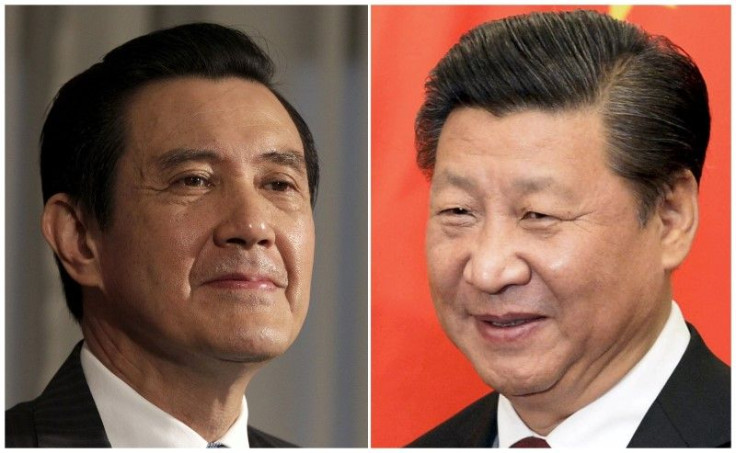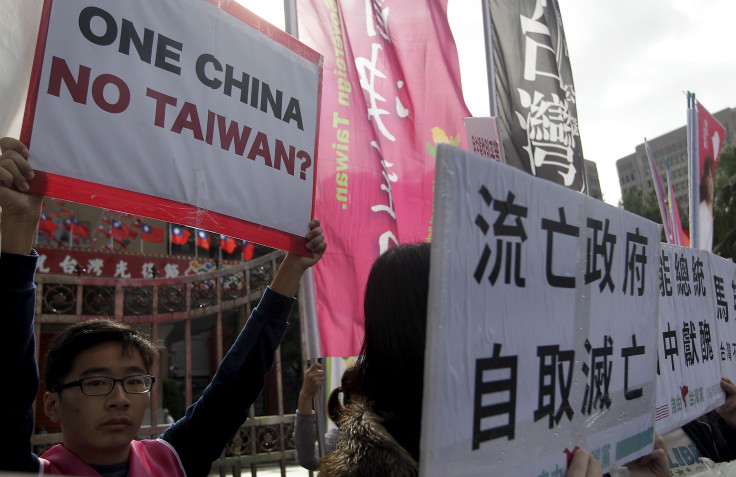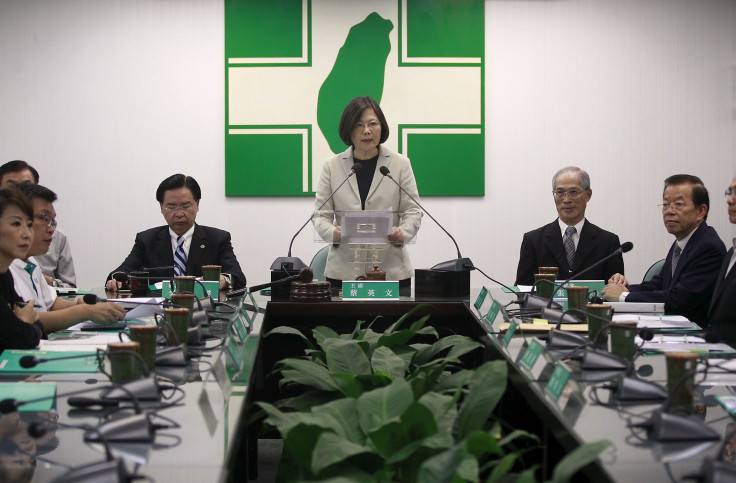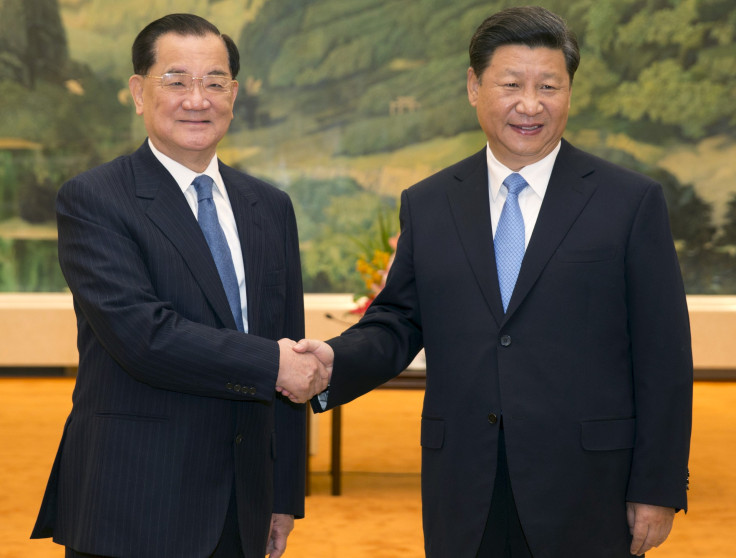China And Taiwan Presidents To Meet For First Time Since Communist Revolution, Ahead Of Key Taiwan Elections

SHANGHAI -- The presidents of China and Taiwan will hold a historic meeting in Singapore on Saturday -- the first direct talks between leaders of the two sides since the Chinese Communist Party defeated Taiwan’s ruling Nationalist Party (the Kuomintang or KMT) in a civil war in 1949.
The meeting between Chinese President Xi Jinping and Taiwan’s Ma Ying-jeou comes amid fast-growing economic ties between the two sides -- and continuing controversy over these links in Taiwan, which China claims as part of its territory. A Taiwanese spokesman said no agreement would be signed at the talks, but said the two sides would exchange views on their relationship, with the aim of securing “cross-straits peace.” Chinese officials also said the leaders would “exchange views on promoting the peaceful development of cross-Strait relations" at the meeting, which comes during President Xi’s state visit to Singapore.
The two sides have seen trade boom to more than $170 billion a year, and up to a million Taiwanese have moved to mainland China to invest or manufacture over the past two decades. However their political stand-off continues: Taiwan, which lies off China’s southeast coast, is still officially known as the Republic of China, and until recent years the two sides battled each other for diplomatic partners and recognition. China’s leaders have repeatedly called for reunification with Taiwan, describing this as their historic mission. They have said unification should be achieved by peaceful means, but, under a 2005 law, reserve the right to use force if the island of 23 million people ever declares formal independence.

The complex relationship is highlighted by the fact that the two leaders have had to agree in advance to address each other as “Mr.” during their meeting and dinner Saturday, according to Chinese media, since neither formally recognizes the other’s presidential status.
For Taiwan’s Ma, the talks represent the culmination of efforts to improve relations with Beijing during his eight years in office, which will end next year. The Harvard-educated lawyer has forged a series of trade and investment pacts with China, and oversaw the opening of the first regular direct passenger flights between the two sides in 2008.
However, these moves have been controversial in Taiwan, where critics say they have benefited big business more than ordinary people, and have led to too much Chinese influence. Tensions peaked in March last year, when student demonstrators stormed Taiwan’s parliament and occupied the building for more than three weeks, in protest at a planned services trade accord with China. Ma Ying-jeou’s KMT party then experienced its worst-ever rout in local elections later last year, which some analysts saw in part as a rejection of his China policy.
Observers in Taiwan said the talks may be aimed at shoring up Ma’s legacy before he stands down at the end of his term, and both he and Beijing may hope the historic meeting will boost the KMT in next January's presidential election, which will choose Ma's successor. The KMT candidate Eric Chu is currently trailing in the polls against the opposition Democratic Progressive Party (DPP), which China regards with great suspicion due to its traditional links to Taiwan’s independence movement.

But it remains to be seen whether the talks can achieve any significant progress. Many observers say Ma cannot make significant further concessions to China: polls suggest relatively low support in Taiwan for outright unification with China under the rule of the Communist Party, and Ma himself said last month that he was not ready to discuss reunification with China because the “political situation between the two sides is still very different.”
And attempts by Chinese leaders to influence Taiwan’s elections have not always achieved the desired effect: in 1996, China conducted live-fire missile exercises in the Taiwan Strait, in what was seen as an attempt to warn Taiwan’s voters not to re-elect then President Lee Teng-hui, who Beijing viewed with suspicion. In 2000, Chinese leaders also warned of the risks Taiwan would face if DPP candidate Chen Shui-bian became president. Chen won the election, bringing the DPP to power for eight years.
Cheng Yun-peng, a spokesman for the DPP responded to news of the talks between the presidents by saying that "cross-strait issues" were related to Taiwan's "national interest” and should not be exploited for “political considerations," Reuters reported. Cheng said that, at such a “sensitive time,” it was inevitable people would see the meeting “as a political operation intended to affect the election.”
China’s President Xi, who is seen as being more assertive about issues of Chinese sovereignty than his predecessors, has repeatedly stressed the importance of reunification with Taiwan. In what was seen as a conciliatory gesture, China’s recent military parade to commemorate the seventieth anniversary of the end of its war with Japan also highlighted the role of the KMT army in fighting the Japanese -- something China had previously sought to downplay. However, in a reminder of continuing tensions, the KMT refused to take part in the parade, though some mainland-based former KMT soldiers participated, and the party's former chairman, Lien Chan, a regular visitor to China, defied the KMT leadership to attend in a personal capacity.

Eric Chu, the KMT presidential candidate, has pledged to take ties with mainland China to a new level if he is elected in January. However analysts say Beijing has accepted that DPP candidate Tsai Ing-wen -- who has said she will maintain the status quo and not push for independence if elected -- has a good chance of winning the election, but hopes that the KMT will retain control of the upper house of Taiwan’s legislature.
© Copyright IBTimes 2024. All rights reserved.












